The Winter Olympics in Sochi have been overshadowed by Russia’s ‘Gay Propaganda Law’ and the plight of LGBTs in the country. The Gay Propaganda law, passed in June last year, makes it illegal to suggest that gay relationships are equal to heterosexual relationships or to distribute material on gay rights.
Since the law was enacted gay rights activists have been arrested and homophobic hate crimes have increased. However, despite widespread condemnation of the human rights abuses in Russia, the Winter Olympics in Sochi took place as planned.
As the games draw to a close at the end of this week, we’ve got a roundup of some of the good and the bad to come out of the Winter Olympics in Russia.
The Good: 7 openly LGBT athletes brave Sochi
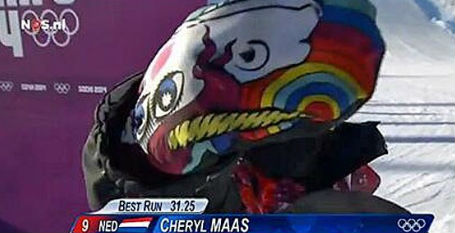
Openly LGBT athletes make up less than 1 percent of the athletes attending Sochi, however we must take our hats off to them. Our favourite? Dutch snowboarder Cheryl Maas.
The out lesbian with a wife and child has spoken out about her displeasure of Sochi being chosen as the location for the Olympics. She performed her own protest by shoving her rainbow unicorn gloves in front of the camera after she finished her run.
International Olympic Committee hints that future bidders will have to abide by anti-discrimination rule
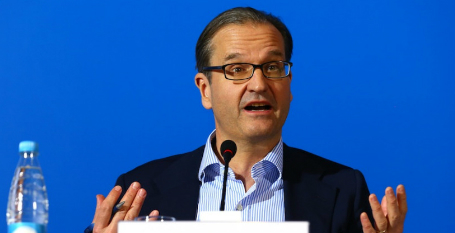
There has been an increasing call to make conforming to Principle 6 (‘Sport does not discriminate on grounds of race, religion, politics, gender or otherwise’) a part of the bidding rules. Current and former athletes, including former tennis champion Martina Navratilova as well as pop star Rihanna, are among the big names to have publicly spoken out in favour of Principle 6.
When IOC spokesperson Mark Adams was asked by reporters if Principle 6 could become part of the bidding criteria, he replied "It (Principle 6) is not something that is specifically looked at but if there is a groundswell of opinion it could be."
He also asserted that all though sexuality is not mentioned by name in the charter, “we have made it absolutely crystal clear that Principle 6 covers all forms of discrimination.”
Pressure from inside and outside Russia means that anti-gay law now faces court scrutiny
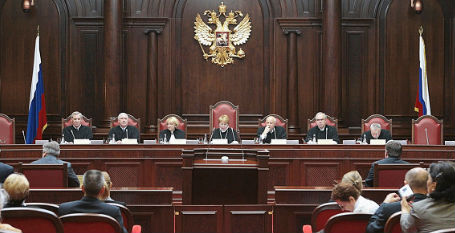
Russia’s Constitutional Court will evaluate Russia’s gay propaganda bill. Gay rights activists are hoping judges will rule against the law banning the promotion of homosexuality. They say they are giving Russian courts its ‘last chance’ to recognize the homophobic legislation is in contradiction of basic human rights given to the LGBT community in Russia’s constitution.
The Constitutional Court has agreed to examine and evaluate the new law but it is likely to side with Vladimir Putin and the State Duma who unanimously passed the bill last year. If this last chance fails, human rights activists will take the case to the European Court of Human Rights in Strasbourg.
The Bad: Asian Leaders let the side down with both Xi from China and Abe of Japan attending Sochi
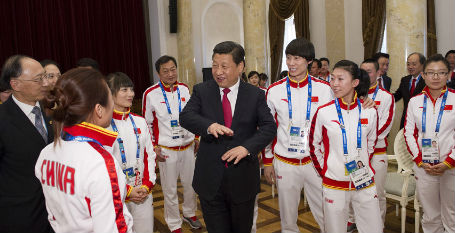
Both Japanese Prime Minister Shinzo Abe and his Chinese counterpart President Xi Jinping appeared not to be bothered by the international ruckus over Russia’s law restricting gay rights. Unlike US president Barack Obama, are French President Francois Hollande, British Prime Minister David Cameron, both Japan and China’s leaders made it to the opening ceremony.
Amnesty International noted that this action reflected the state of gay rights in both countries; the lack of public discourse on gay rights in China and the fact that minority rights in Japan lack behind the West.
Pussy Riot in jail again after demonstrating in Sochi
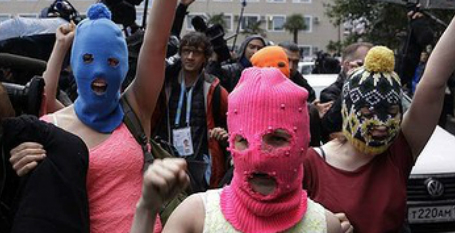
Protest group and band Pussy Riot found themselves back behind bars (although only briefly) just a couple of months after being released from their 2 year prison term.
Two members of the band were in the city to raise awareness of the federal anti-gay law and recording a musical film called ‘Putin Will Teach You To Love The Motherland’. Both women said police used force to throw them in a police van. They were freed without charge after ten hours.
The IOC defends the ejection of transgender gay rights activist from Olympic venue
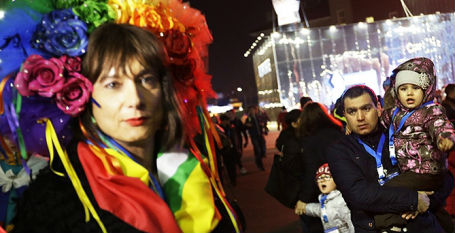
Activist Vladimir Luxuria, a former Italian MP, was briefly held by Russian police on Sunday evening and was again escorted from the Olympic Park on Monday evening. Luxuria was dressed in rainbow attire and was brandishing a sign that said ‘It’s OK to be Gay.’
Spokesperson Mark Adams confirmed that the transgender activist had been demonstrating inside ice hockey venue and had been escorted out and detained. He added that “the Olympic Park, the Olympic venues are not for us, the place for demonstrations, whether we are sympathetic or not.”











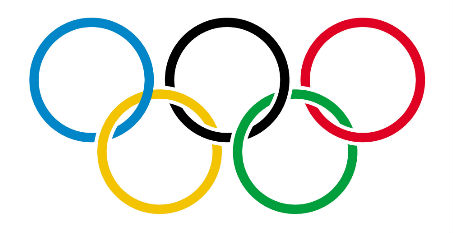
 Printable Version
Printable Version


















Reader's Comments
Olympics' origin ethics stress on fostering ties and binding athletes from five different continents, from a varieties of cultures and religions, different races and languages, and now a diverse of gender and sexuality, and maybe beyond humanity in the future.., all through common sports.
Please log in to use this feature.